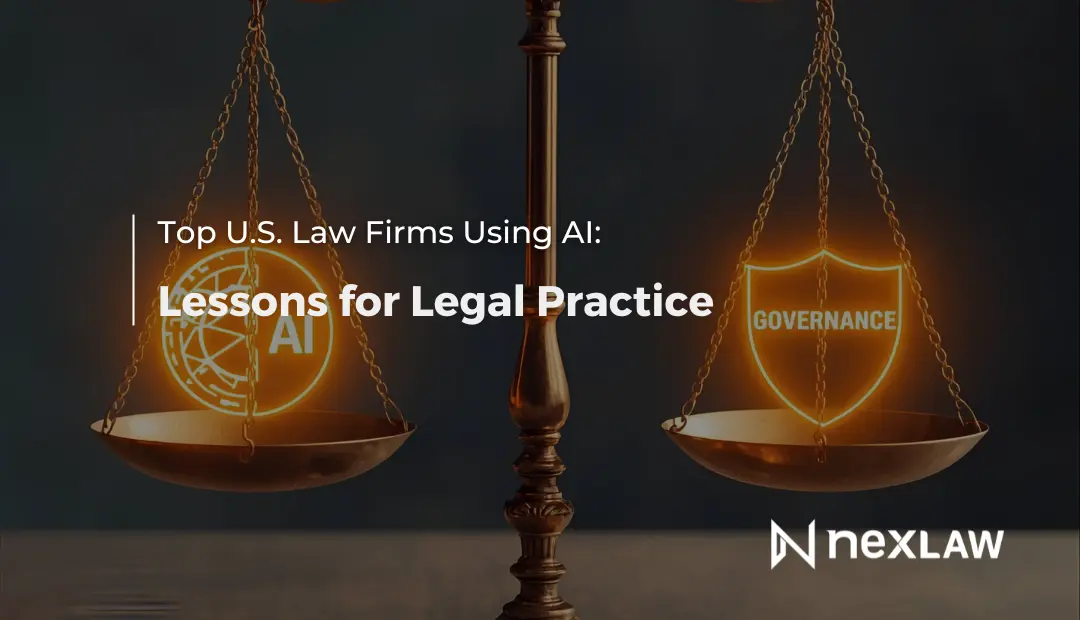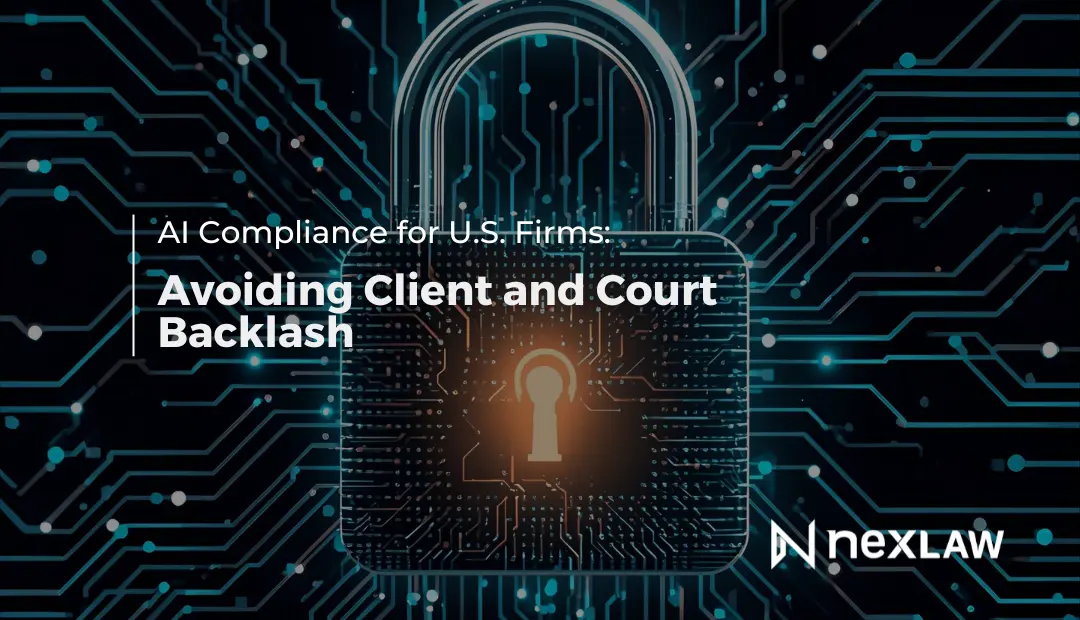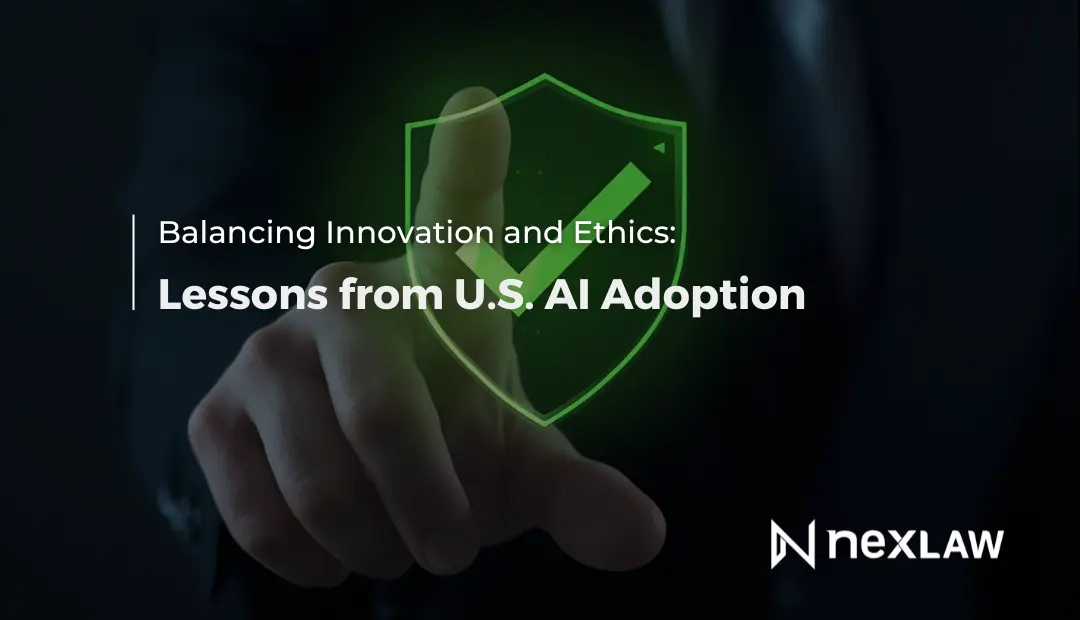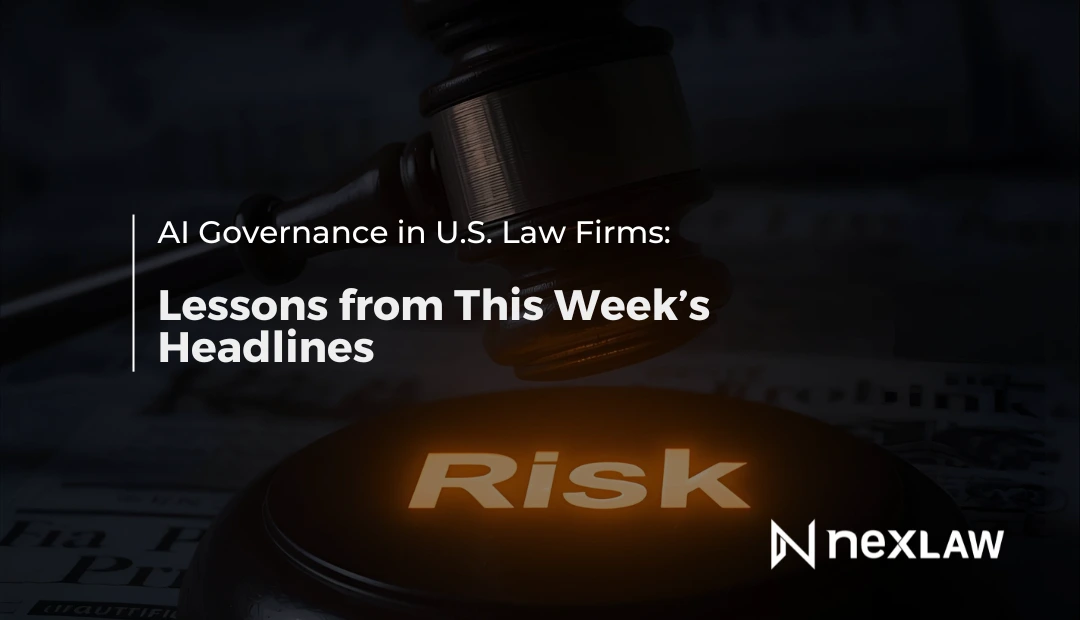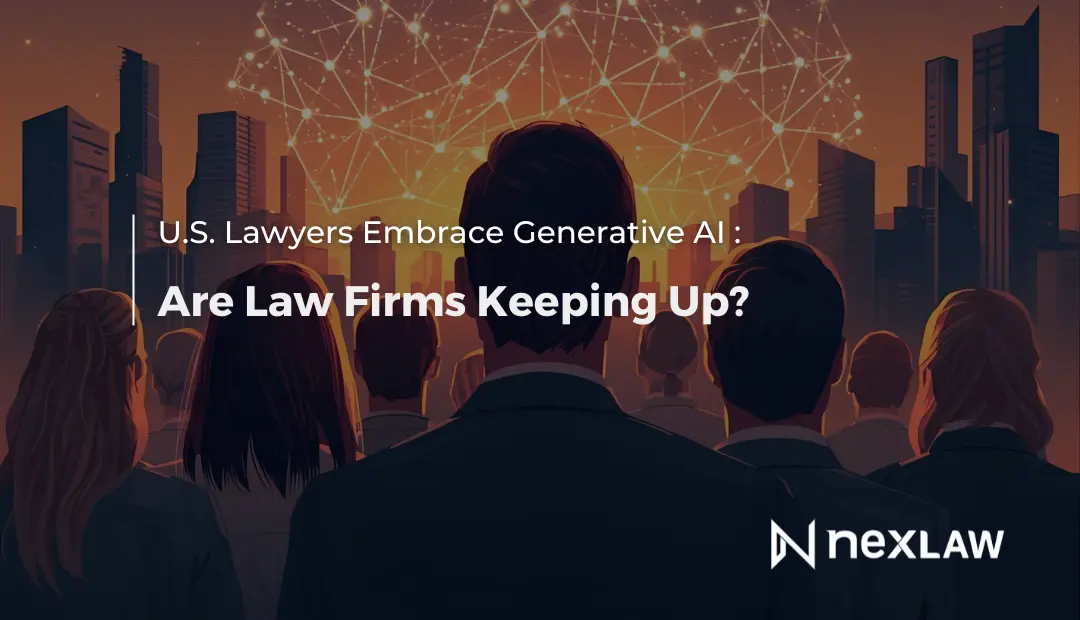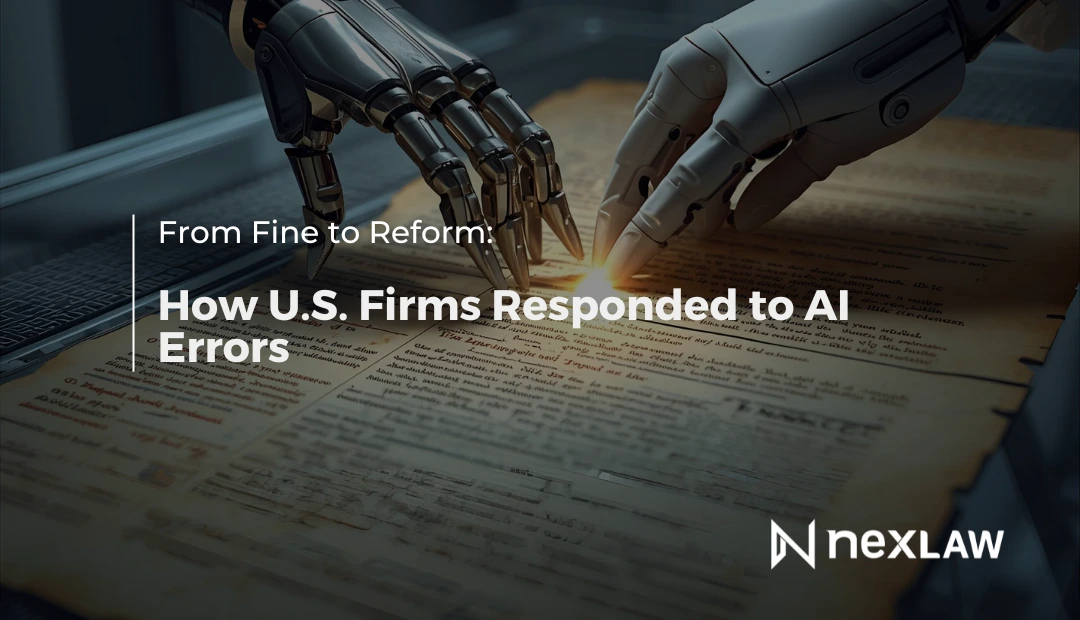Top U.S. Law Firms Using AI — Lessons for Legal Practice
The AI Moment in U.S. Litigation
Artificial intelligence (AI) is no longer a distant concept in U.S. law firms, it has become a tangible part of modern litigation workflows. From drafting motions and reviewing contracts to conducting legal research and managing case documentation, AI tools are increasingly integrated into daily legal practice.
Unlock Legal Insights Instantly!
Leading law firms have demonstrated that structured AI adoption, combined with robust governance, verification processes, and human oversight, allows teams to improve efficiency, maintain compliance, and enhance client service. Lessons learned from these firms provide guidance for law practices of all sizes, from boutique firms to large litigation teams.
The Strategic Approach to AI Adoption
Successful AI integration is rarely ad hoc. Law firms are discovering that the most effective use of AI requires planning, oversight, and continuous evaluation. There are several common practices among firms that have successfully implemented AI in their operations:
1. Establishing Governance and Policies
Top-performing firms create formal AI governance policies to define how technology should be used, who can access it, and what safeguards are in place to protect sensitive information. Governance ensures that AI outputs remain accurate, ethical, and compliant with professional responsibilities. Policies may cover:
- Data security and client confidentiality
- Verification processes for AI-generated content
- Guidelines for responsible adoption and use of AI in litigation
Governance is not just a compliance measure, it is a risk management strategy that builds client confidence and protects law firms from potential professional liability.
2. Pilot Testing and Phased Implementation
Rather than rolling out AI firm-wide immediately, many law practices start with pilot programs. These small-scale tests allow teams to evaluate tool performance, monitor accuracy, and create best practices for later expansion. Phased adoption also helps teams identify limitations, minimize errors, and ensure that AI complements human expertise rather than replacing it.
3. Training AI Superusers
Some firms designate certain attorneys or staff members as AI superusers. These individuals receive advanced training, serve as points of contact for questions, and oversee quality control of AI outputs. Superusers help ensure that AI adoption scales effectively and that teams maintain consistent standards across the firm.
AI in Legal Workflows: Applications and Benefits
AI adoption in litigation extends beyond basic automation. Firms are leveraging specialized tools to improve multiple aspects of legal workflows:
Document Drafting and Review
AI can assist with drafting pleadings, contracts, motions, and discovery materials. When used responsibly, it accelerates repetitive tasks while allowing attorneys to focus on nuanced legal analysis. Verification and human oversight are essential to prevent errors and ensure compliance with procedural rules.
Legal Research
AI-powered research tools can analyze case law, statutes, and regulations more efficiently than manual review alone. Specialized legal AI provides verified sources, reducing the risk of relying on incorrect information. This enables attorneys to gather insights faster while maintaining high standards of accuracy.
Strategic Planning
AI tools can also support litigation strategy. By organizing case documents, summarizing key points, and identifying relevant legal precedents, AI helps attorneys make informed decisions on settlement options, courtroom strategy, and client advisories. This strategic support enhances efficiency and strengthens case preparation.
Risks and Limitations of General AI
While AI presents many opportunities, law firms must remain aware of potential risks, particularly when using general-purpose AI tools:
- Accuracy Concerns: Tools not trained on verified legal data may produce outputs that are plausible but incorrect, including fabricated citations or misapplied precedent.
- Data Privacy: Cloud-based AI may store user inputs, raising concerns regarding attorney-client confidentiality.
- Lack of Legal Specialization: Generic AI lacks understanding of litigation procedures, case law nuances, and ethical obligations.
Responsible AI adoption requires combining technology with human review, verification protocols, and governance policies to mitigate these risks.
Lessons from Law Firms Leading in AI Adoption
While specific firm names and proprietary data are not disclosed, industry trends highlight common strategies among firms successfully integrating AI:
Governance Matters
Firms with clear policies defining acceptable AI use, data access controls, and verification procedures consistently reduce the risk of errors and maintain professional integrity. Governance ensures that AI adoption aligns with ethical standards and client expectations.
Verification Is Essential
Verification processes, such as cross-checking AI outputs against trusted legal sources, are critical to maintaining accuracy. Firms that prioritize verification reduce the likelihood of errors in court filings and improve overall reliability.
Phased Implementation Works
Pilot programs and incremental rollouts allow teams to identify potential issues early, develop workflows that integrate human review, and train users effectively. Phased adoption mitigates risks associated with rushing AI implementation across the firm.
Specialization Provides an Advantage
AI tools specifically designed for U.S. litigation provide greater accuracy, compliance, and workflow efficiency than general-purpose platforms. By focusing on litigation-specific needs, these tools help law firms maintain professional standards while benefiting from automation.
How Specialized AI Tools Make a Difference
Specialized legal AI, like NexLaw, is purpose-built for U.S. litigation. Its design prioritizes accuracy, compliance, and transparency, which are critical for responsible adoption:
- Verified Legal Data: Outputs are based on curated statutes, case law, and regulations, reducing the risk of errors.
- Compliance and Confidentiality: Data handling is designed to protect attorney-client privilege and adhere to professional ethical standards.
- Litigation-Focused Workflows: Features include motion drafting, discovery review, and exhibit organization.
- Traceability: Every output can be linked to verifiable sources, enhancing reliability in court and client communications.
By focusing on verification, transparency, and litigation-specific features, specialized AI tools provide confidence and efficiency without compromising professional obligations.
Actionable Steps for Smaller Firms
Smaller or mid-sized firms can adopt AI responsibly without large budgets:
- Implement Governance Policies: Even a small team benefits from clear protocols on AI use and data security.
- Pilot Programs: Begin with a small group of trained superusers before expanding usage firm-wide.
- Prioritize Compliance: Choose AI tools that provide verification, audit trails, and confidentiality safeguards.
- Integrate into Existing Workflows: Focus on areas where AI adds value, such as document review and research, while maintaining human oversight.
With specialized AI, smaller firms can access capabilities previously available only to larger organizations, leveling the playing field.
Key Takeaways
- AI is operational, not experimental. Legal teams are actively integrating AI into real workflows.
- Governance and oversight are critical. Policies, verification, and human review reduce compliance and ethical risks.
- Accuracy and specialization matter. Litigation-focused AI tools minimize errors and support professional responsibilities.
- Transparency builds client trust. Verified outputs and ethical practices reinforce reliability and service quality.
Why NexLaw AI Is the Smart Choice
NexLaw provides a litigation-focused AI platform that aligns with best practices in AI adoption:
- Accuracy: Curated legal sources ensure reliable outputs.
- Compliance: Confidentiality and ethical safeguards protect attorney-client privilege.
- Efficiency: Streamlines repetitive tasks such as drafting, discovery review, and research.
- Strategic Insight: AI-assisted analysis supports informed decisions for case strategy.
Whether for solo practitioners or large firms, NexLaw allows attorneys to adopt AI responsibly, efficiently, and safely.
Final Thoughts
AI in U.S. law is no longer a question of “if” but “how.” By implementing structured adoption practices, governance, verification, pilot testing, and specialized tools, law firms can improve efficiency while maintaining professional standards.
Specialized AI solutions like NexLaw provide accuracy, compliance, and transparency, empowering attorneys to integrate AI confidently into litigation workflows. With careful planning, human oversight, and reliable technology, law firms can achieve better client service, operational efficiency, and risk management.
Lawyers who embrace AI today are shaping the legal profession of tomorrow. Whether you’re part of a litigation team, a solo attorney, or a paralegal eager to expand your role, NexLaw makes it possible.
NexLaw is designed to help paralegals and attorneys—solo or from small and mid-size—prepare cases more efficiently, with greater accuracy and strategic insight.
Book a Guided Demo — See how NexLaw fits seamlessly into your practice and transforms your workflows with a quick walkthrough
You can either start your free 3-day trial (no card required) or 7-day trial (card required) to get hands-on right away — Explore NexLaw risk-free and experience firsthand how AI can enhance efficiency, accuracy, and client satisfaction.
*t&c applied | visit our website for more details
With NexLaw, the future of litigation is here - AI-powered, accurate, and accessible.
